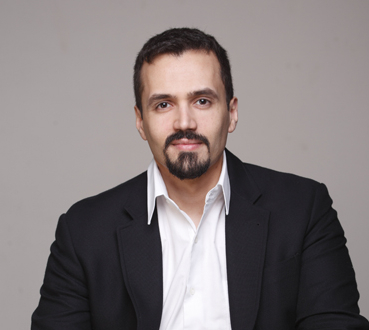By Rania Al Malky
CAIRO: What happened in Tunisia over the past three weeks is little short of a revolution whose domino effect many in Egypt hope will not only touch the banks of the Nile, but the capital cities of the entire Arab world.
“No to presidency for life,” repeated Tunisian President Zein El Abidine Ben Ali three times in a televised speech Thursday. This was his third since riots broke out on December 17, sparked by the attempted self-immolation in the town of Sidi Bouzid of a 26-year-old unemployed university graduate who tried to commit suicide when police confiscated fruits and vegetables he was trying to sell because he lacked a permit. On Jan. 5, Bouazizi died because of his self-inflicted burns, but by then the fire of angry protests had already spread across the country until it reached Tunis, where hundreds of demonstrators demanded jobs and civil liberties in solidarity with protestors in poorer regions.
By the last days of December three governors and three ministers are sacked for reasons related to the uprisings and Ben Ali warns in the first of three televised addresses that the protestors, who he described as a “minority of extremists” will be punished by the power of the law for their alleged attack on public property and state buildings.
Violence escalates across the country as lawyers join the ad hoc street protests and 95 percent of them go on strike. According to some reports, a total of 66 people were killed in clashes as crowds threw stones and petrol bombs at the police, which retaliated using live ammunition.
After sacking the Interior Minister and ordering an investigation into the killings, Ben Ali, who has been ruling Tunisia with an iron fist for 23 years, not only vowed to step down in 2014 when the next presidential elections are scheduled, but also promised to institute widespread reforms, lift the government’s heavy hand from the media, remove a ban imposed on websites such as YouTube, cut the prices of staples like sugar and milk as well as promise to reach 2014 with “proper reconciliation” through an open dialogue with the opposition and the possibility of holding legislative elections before the presidential poll in three years.
Everywhere, Egyptians are looking on with awe at what is happening in Tunisia. Have the ordinary citizens of this small country in the northernmost region of Africa and with a population of just over 10 million actually been able to rise up en masse, in one breath and say “No more” to a totalitarian regime that has suffocated its people for over two decades? Will the concessions Ben Ali was forced to make actually be implemented? Has the Arab world just witnessed its first modern, relatively non-violent, civilian revolt with no help from the armed forces? Perhaps.
Ironically, all the events that led to the Tunisian uprising are daily occurrences in Egypt: whether it’s rising prices, rampant unemployment, general despair, attempted suicides or the repugnant stench of widespread corruption. Why then do we not sustain the momentum of our protests — which have sadly become like withered embroidery bordering the patchwork of Egypt’s so-called democracy? And when Egyptians do come together in modest numbers, why then does the regime not feel obliged to make fundamental reform, satisfied that protestors will welcome the bread crumbs it offers as major victories? Why is it also easy for many of us to buy into the conspiracy theories propagated by the regime to justify all its failures?
Indeed no one is questioning the scenario we’ve all heard too often before: that the world’s superpower aided by its Zionist ally in the Middle East is behind the ills the Arab world is collectively facing today — sectarian strife in Egypt, anti-government protests in Tunisia and Algeria, a Sudan that is about to split in half, a collapsed government in Lebanon and a volatile terror-ridden Iraq whose leadership can disintegrate any minute.
No one questions our collective responsibility as a society for all the ills faced by our nation as a whole, whether or not we are personally touched by them. In Tunis protestors went out in droves not only for themselves, but in solidarity with their fellow citizens in poorer regions. That belief in a unified fate and goal for which we must all struggle is decidedly absent from Egyptian society, which has become so fragmented politically, socially and economically that it has lost its voice.
That said, the Tunisian upheaval and its aftermath, whether Ben Ali steps down now as protestors are demanding, or whether he will be gone in a couple of years, provides a glimmer of hope to all citizens living under totalitarian regimes everywhere. It has shown us that it is no longer a choice between civil wars or military coups.
There is a third option and the Tunisians are leading the way.
Rania Al Malky is the Chief Editor of Daily News Egypt.

